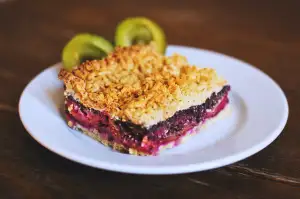Crack the Code: Discover the Best Egg Substitute Recipes for Culinary Delights

Eggs are a staple ingredient in many culinary creations, adding richness, moisture, and structure to dishes. However, for those with dietary restrictions or allergies, finding suitable alternatives can be a challenge. That's where egg substitutes come in. These versatile ingredients mimic the properties of eggs, allowing you to enjoy your favorite recipes without compromising taste or texture. Whether you're vegan, have an egg allergy, or simply want to explore new flavors, egg substitutes open up a world of possibilities in the kitchen. In this article, we'll dive into the realm of egg substitutes and discover the best recipes for culinary delights that will leave you craving more. So let's crack the code and unlock the secrets of using egg substitutes in your cooking and baking adventures!
Health Benefits of Using Egg Substitutes
Using egg substitutes in your culinary creations not only adds variety to your dishes but also offers numerous health benefits. One major advantage is that egg substitutes are typically lower in calories and fat compared to whole eggs, making them a healthier option for those watching their weight or cholesterol levels. Additionally, many egg substitutes are cholesterol-free, making them suitable for individuals with dietary restrictions or certain health conditions. Moreover, some egg substitutes are rich in essential nutrients like protein, vitamins, and minerals, providing a nutritious boost to your meals without the added cholesterol. By incorporating egg substitutes into your cooking and baking, you can enjoy the taste and texture of eggs while reaping the health benefits they offer.
Common Types of Egg Substitutes
For those who are looking to avoid using eggs in their culinary creations, there are several common types of egg substitutes available. These alternatives can be used in various recipes to achieve similar results without compromising on taste or texture.
1. Applesauce: This fruit puree is a popular choice for replacing eggs in baking recipes. It adds moisture and helps bind ingredients together. Use ¼ cup of applesauce for every egg called for in the recipe.
2. Mashed Banana: Ripe mashed bananas work well as an egg substitute, especially in sweet baked goods like muffins and cakes. The natural sweetness of bananas adds flavor and moisture to the final product. Replace each egg with ½ mashed banana.
3. Silken Tofu: Silken tofu is a versatile ingredient that can mimic the creamy texture of eggs in both savory and sweet dishes. Blend ¼ cup of silken tofu until smooth to replace one egg.
4. Yogurt: Plain yogurt, whether dairy or plant-based, can be used as an egg substitute in many recipes. It adds moisture and richness to baked goods. Substitute ¼ cup of yogurt for each egg.
5. Flaxseed Meal: Ground flaxseed mixed with water creates a gel-like substance that works well as an egg replacement in recipes like pancakes and cookies. Mix 1 tablespoon of flaxseed meal with 3 tablespoons of water to replace one egg.
6. Aquafaba: Aquafaba refers to the liquid from canned chickpeas or the cooking liquid from homemade chickpeas. It has properties similar to egg whites and can be whipped into peaks or used as a binder in recipes like meringues and mayonnaise.
These common types of egg substitutes offer a range of options for those who follow vegan diets, have allergies, or simply prefer not to use eggs in their cooking and baking endeavors. Experimenting with these alternatives can open up a whole new world of culinary possibilities.
How to Use Egg Substitutes in Cooking and Baking
When using egg substitutes in cooking and baking, it's important to understand their purpose and how they can be effectively incorporated into your recipes. Here are some tips on how to use egg substitutes:
1. Read the recipe: Before substituting eggs, carefully read the recipe instructions to determine the role of eggs in the dish. Eggs can provide moisture, structure, leavening, or binding properties.
2. Choose the right substitute: Select an egg substitute that best matches the function of eggs in your recipe. For moisture, try mashed bananas or applesauce. For binding and structure, consider using flaxseed meal or chia seeds mixed with water.
3. Measure accurately: Follow the recommended measurements for your chosen egg substitute. Too much or too little can affect the texture and taste of your final dish.
4. Adjust cooking time and temperature: Some egg substitutes may require adjustments in cooking time and temperature. Keep an eye on your dish while it bakes to ensure it cooks evenly.
5. Experiment and adapt: Don't be afraid to experiment with different egg substitutes to find what works best for you. Each substitute may have a unique flavor profile and texture, so adjust accordingly.
By understanding how to use egg substitutes effectively, you can confidently create delicious dishes without compromising taste or texture. So go ahead, get creative in the kitchen and embrace the versatility of these alternatives!
Delicious Recipes Using Egg Substitutes
1. Vegan Banana Pancakes: Replace eggs with mashed bananas for a fluffy and flavorful pancake breakfast. Mix 1 ripe banana, 1 cup of flour, 1 tablespoon of sugar, 1 teaspoon of baking powder, and ¾ cup of plant-based milk. Cook on a griddle and enjoy!
2. Flaxseed Brownies: Create rich and fudgy brownies without eggs by using flaxseed. Combine 2 tablespoons of ground flaxseed with 5 tablespoons of water to make an egg-like consistency. Add this mixture to your favorite brownie recipe for a delectable treat.
3. Tofu Scramble: For a hearty vegan breakfast option, try making a tofu scramble instead of scrambled eggs. Crumble firm tofu into a pan with sautéed vegetables like onions, peppers, and spinach. Season with turmeric, salt, and pepper for a tasty alternative.
4. Chia Seed Pudding: Make a creamy and nutritious dessert by replacing eggs with chia seeds in pudding recipes. Combine ¼ cup of chia seeds with 1 cup of plant-based milk and sweeten to taste with maple syrup or honey. Let it sit overnight in the fridge to thicken.
5. Applesauce Muffins: Swap out eggs for applesauce in muffin recipes for moist and fruity treats. Use ¼ cup of unsweetened applesauce per egg called for in the recipe. The applesauce adds moisture while keeping the muffins light and delicious.
These recipes showcase the versatility of egg substitutes while still delivering incredible taste and texture in your culinary creations!
Tips and Tricks for Using Egg Substitutes
1. Experiment: Don't be afraid to try different egg substitutes in your recipes. Each substitute has its own unique flavor and texture, so play around with them to find the perfect match for your dish.
2. Adjust the Quantity: Keep in mind that not all egg substitutes can be used in a 1:1 ratio with eggs. Some may require more or less depending on the recipe. Be sure to read the instructions carefully and adjust accordingly.
3. Binding Agents: If you're using an egg substitute for binding purposes, such as in meatloaf or veggie burgers, consider adding a tablespoon of ground flaxseed or chia seeds mixed with water. This will help create a gel-like consistency that mimics eggs.
4. Leavening Agents: When using egg substitutes in baked goods, it's important to consider leavening agents like baking powder or baking soda. These ingredients help the dough rise, so make sure to adjust the quantities accordingly if your substitute doesn't provide enough leavening power.
5. Texture Enhancers: To improve the texture of your dishes when using egg substitutes, you can add ingredients like applesauce, mashed bananas, yogurt, or silken tofu. These ingredients add moisture and richness while maintaining the desired consistency.
6. Temperature Matters: Pay attention to cooking temperatures when using egg substitutes. Some substitutes may not hold up well under high heat, so adjust cooking times and temperatures as needed.
7. Taste Test: Always taste test your dishes before serving when using egg substitutes for flavoring purposes. Some substitutes may alter the taste slightly, so make sure it complements the overall flavor profile of your dish.
Remember, practice makes perfect when it comes to using egg substitutes in your culinary creations. Don't be discouraged if it takes a few tries to get it right – embrace the versatility of these alternatives and enjoy exploring new flavors and textures in your favorite recipes.
In conclusion, egg substitutes offer a world of possibilities for culinary enthusiasts. Whether you are looking to reduce cholesterol, accommodate dietary restrictions, or experiment with new flavors and textures, there is an egg substitute out there for you. From flaxseed and applesauce to tofu and mashed bananas, these alternatives can be seamlessly incorporated into your favorite recipes without sacrificing taste or quality. So why not embrace the versatility of egg substitutes and embark on a journey of culinary delights? Get cracking and discover a whole new world of delicious possibilities!
Published: 20. 12. 2023
Category: Recipes



